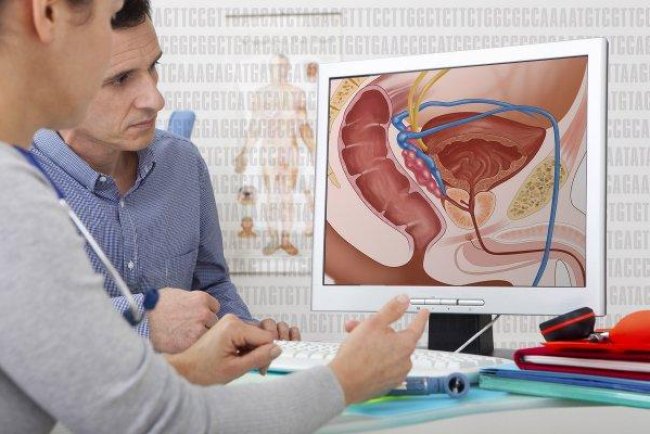Are You Receiving Medical Care That You Do not Need? Let us discuss it.
Let us face it: it is simple to fall into the trap of believing that more health care equates to better health in a world where your inbox is overflowing with advertisements for at-home health tests, your social media feed is promoting supplements for everything from brittle nails to brain fog, and your workplace wellness program is pushing "free" health screenings.

The fact that not all medical treatment is created equal is something that is rarely discussed. Up to one in five medical services in the United States may actually be unnecessary, according to a growing body of research. Yes, 20% of medications, therapies, and tests may cause more damage than good. In an effort to keep one step ahead of illness, many of us continue to pursue every scan, screening, and supplement. It seems proactive. Responsible. Sometimes, though, it is just useless or, worse, dangerous.
When Taking the Initiative Can Backfire
We have been taught that it is always ideal to catch things early. that we are safer when we know more. It is wise to err on the side of caution. The catch is that not all information is useful. You have entered a vicious cycle of overcare that could make things worse if a test gives you false or irrelevant results, or if it prompts additional testing, stress, or even needless therapies.
The cost is being paid for by someone, even if you aren't. Additionally, it is driving up health care expenses overall.
Selective health care is what smart health care is.
This is not an excuse to disregard medical advice. However, it does entail posing more intelligent queries:
For someone like myself, what is the true advantage of this test or treatment?
What are the possible drawbacks?
Would it really be safer to wait or to forego this altogether?
Here are some typical situations when having more does not automatically translate into being better:
Understanding When to Say "Cancer Screening" When
Without a doubt, screenings save lives. However, they are not intended to continue indefinitely. For example, it is probably time to cease having routine colonoscopies if you are over 75 and have had them in the past. Pap smears and mammograms should also be discontinued after age 65 and 75, respectively. The dangers of testing and false positives eventually outweigh any potential benefits.
Supplements Are Not a Miracle Cure
Approximately 70% of Americans consume at least one supplement every day, whether it be fish oil, vitamin D, or multivitamins. It seems like a straightforward kind of self-care, a safety net for your nourishment. However, there is little evidence to recommend routine use for the general public.
Indeed, certain people—those with illnesses like macular degeneration or deficits that have been diagnosed—do require vitamins. However, most people choose entire foods over medications. Furthermore, the advantages of a diverse, nutrient-rich diet have never been surpassed by any pill.
Once a Hero, Now a Maybe: Aspirin
Recall the heyday of heart health when low-dose aspirin was the rage? The rules have changed. high cardiovascular risk, it's Probably more harm than good. Aspirin may be raising your risk of stomach bleeding with little to no benefit, especially if you are healthy and over 60.
PSA Testing: Exercise Caution
Even though prostate cancer is prevalent and dangerous, not all men require regular PSA blood tests. The U.S. Preventive Services Task Force advises against screening men between the ages of 55 and 69 and against doing so at all after the age of 70. Why? Many prostate tumors are slow-growing and seldom life-threatening, and false positives can result in unpleasant, needless operations.
Cardiac Examination: No Signs? Most likely no need
Feel well? No risk factors, shortness of breath, or chest pain? Then likely, you don’t require an EKG or stress test. Nevertheless, a lot of people obtain them "just in case" at yearly physicals. However, if there is no apparent cause, these tests may lead to a chain reaction of additional testing, anxiety, and occasionally even surgery—all for a potentially nonexistent cause.
Here's a little-known fact: your doctor may believe you anticipate it. And you would think they demand it. To be safe, it turns into an unspoken loop of doing too much. However, being safe does not always entail "doing everything." It can sometimes mean skipping the rest and doing the right thing at the right moment.
Four More Arguments Against Overcare:
Uncomfort is important. Even "harmless" exams can be uncomfortable, both mentally and physically.
Both false positives and false reassurance have the potential to mislead you.
There are side effects; if the advantage is unclear, even little ones could be too much.
Medicalizing well-being: Not every slight ache or blood pressure reading requires a diagnosis or treatment.
The Bottom Line: You May Need to Do Less for Your Best Health
Receiving high-quality care means receiving the appropriate care that is customized for you, not more care. It is not neglected if your doctor advises you to taper off a supplement or skip a test. That is subtlety. Evidence-based medicine is what that is. Trust is that.
So pose the challenging questions. Obtain second viewpoints. Speak out for your body. However, avoid the misconception that everything needs to be monitored, examined, or treated. Sometimes the best course of action is to do nothing at all and allow your body to perform its natural function.
What's Your Reaction?




















